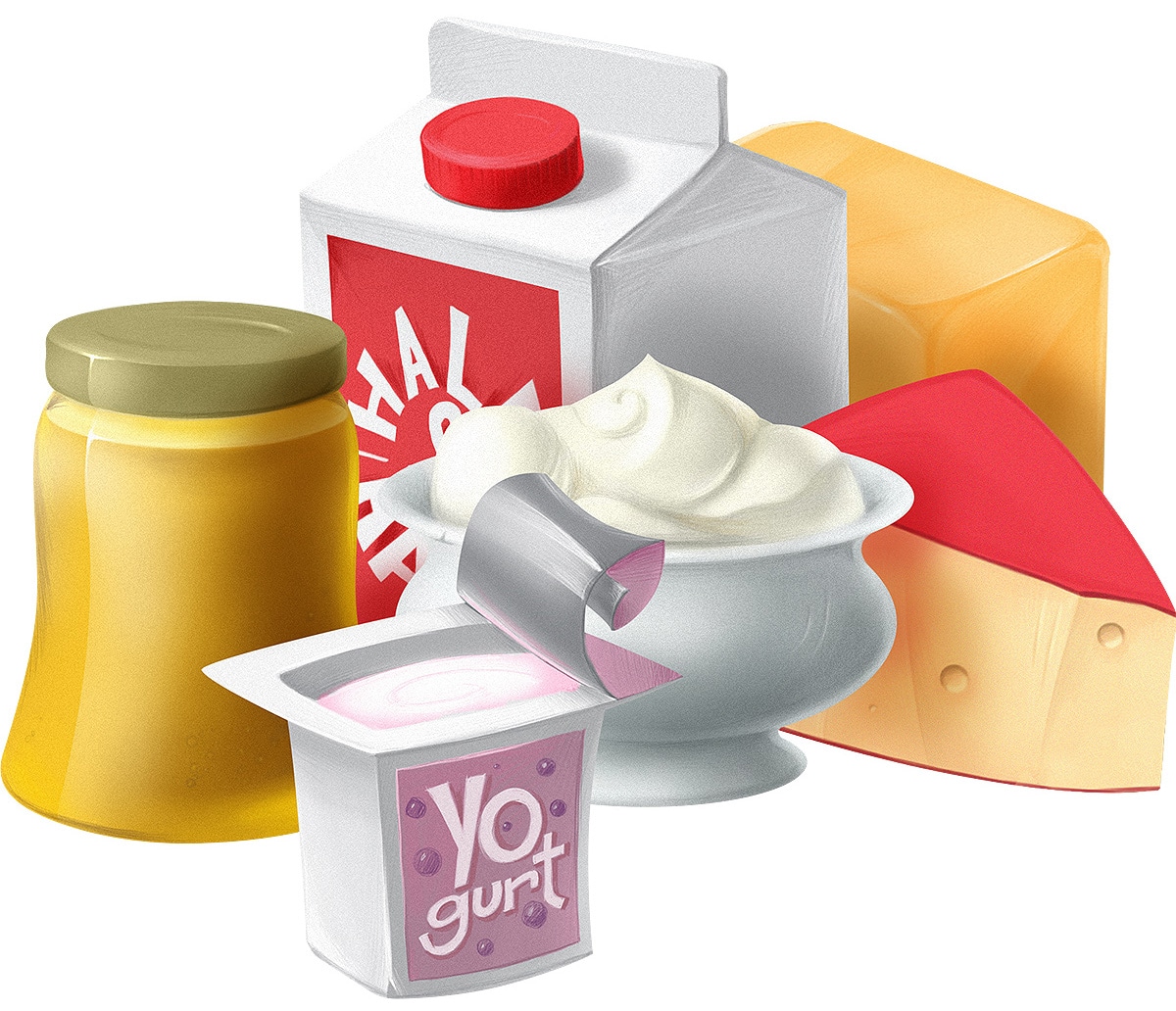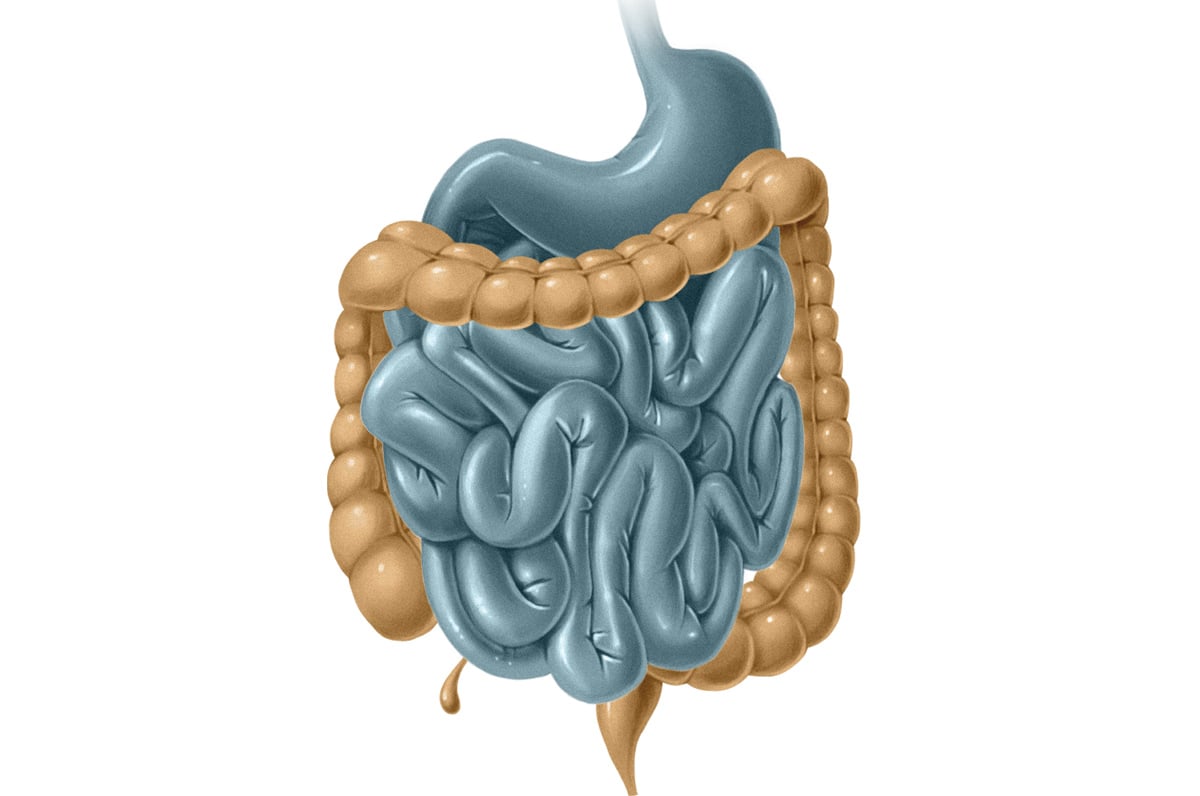
"You're lactose intolerant" can be hard to hear, especially if you love all things cheese and yogurt. In people who are lactose intolerant, lactose gets fermented in the gut, causing gas, bloating, diarrhea, and other symptoms of lactose intolerance. (Very high-fat dairy foods like butter have almost no lactose, which is why even people with lactose intolerance can often eat them and feel fine). But the news might not actually be as bad as you think! Here's a look at it from a Paleo/keto perspective.
Paleo and Lactose
Paleo is all about what people are genetically adapted to eating - and with dairy, some people are well-adapted to it while other people aren’t. The big issue is the main carbohydrate found in milk, lactose, which is broken down by an enzyme called lactase. LactOse with an o is the sugar; lactAse with an a is the enzyme.
Almost everyone makes lactase as a baby to digest breastmilk, but most people’s production of lactase starts dropping off around age 2. Some people with genes from dairying areas like northern Europe have genetic mutations to keep making lactase into adulthood. Most people think lactose intolerance is only about whether you make lactase as an adult - in other words, whether you got the lucky genes or not. But this actually isn't quite true.
Symptoms of lactose intolerance (gas, bloating, diarrhea, etc. after eating dairy) don't map neatly on to genetic differences in lactase production. For one thing, even people who do make lactase as adults can experience the symptoms of lactose intolerance for other (fixable) reasons. And for another, people who don't make lactase as adults can sometimes eat dairy without issues: the human digestive system is pretty amazing at finding workarounds and ways to digest whatever we throw in there. A lot of it really comes down to gut health and the gut bacteria - so here's a look at why that "lactose intolerance" might not actually be a permanent, invariable problem.
Gut healing and Lactose Tolerance

As this study explains, there are two kinds of lactose intolerance: primary and secondary.
Primary lactose intolerance is when you just don’t have the genetic adaptation to keep making lactase past childhood. Secondary lactose intolerance is when you do have all the genetic equipment you need, but something else is going so wrong in your digestive system that it temporarily stops lactase production.
Anything that damages the brush border of the small intestine can cause secondary lactose intolerance. For example, Celiac disease, Crohn’s disease/ulcerative colitis, or severe gastrointestinal infections can all do it.
The good news about secondary lactose intolerance is that once the disease or problem is fixed, lactase production comes back on line and the person can digest lactose and dairy food again. Hooray!
This may be you if:
- You drank milk or ate dairy as a child just fine, but then became intolerant as an adult.
- You’ve had some kind of very serious gastrointestinal infection (E. coli, gastroenteritis, etc.) or other GI-related disease (Celiac disease, Crohn’s disease, etc.).
For folks with secondary lactose intolerance, what they really need is a bit of TLC for the gut - fix whatever the triggering issue is, and then lactase production will come back and everything will be happy in dairyland. On top of actual medical care (which should always come first), a Paleo or Paleo-keto diet is perfect for this: get the gut irritants out, get the inflammation down, and keep the gut lining happy so that everything can heal and normal lactase production can start again. This might be why some people "miraculously" recover from lactose intolerance on Paleo.
The gut biome and lactose tolerance
But what about people with primary lactose intolerance? (these are the folks who just stopped making lactase in childhood genetically, not due to any disease in the intestines). Even people who don’t genetically make much or any lactase can still sometimes eat dairy, depending on how their gut health is doing. There are some kinds of gut bacteria that break down lactose without causing a lot of unpleasant gas and bloating symptoms. The bacteria that live in your gut can pick up a lot of slack, lactose-wise - if you have the right kinds and if they’re happy with you.
When people regularly eat dairy products, they often experience fewer symptoms of lactose intolerance - not because they suddenly start making lactase, but because their gut bacteria learn to handle the excess lactose. Studies on probiotics have also found that seeding the human gut with the good bacteria helps speed up the process.
So which ones are the “good bacteria” in this case? Well, they often tend to be the same ones found in yogurt and fermented dairy products - it’s almost like thousands of years of food tradition is valuable for teaching us something about nutrition! But speaking of that...
Another bacterial option: let your food digest its own lactose!
Bacteria that are already in fermented dairy foods can also help pre-digest some of the lactose - this is one reason why people with lactose intolerance tend to do better with fermented dairy like yogurt. Basically, the bacteria have lactose-digesting enzymes, so they take care of the lactose before it hits your gut to cause you problems.
Best of all, those probiotic strains can colonize the human intestines as well. As this study explains:
“Modulation of the intestinal microbial environment by promoting intestinal colonization by strains capable of β-galactosidase activity could be an effective approach for the treatment of subjects with lactose intolerance. This could greatly improve the tolerance of small amounts of lactose (such as those often unknowingly consumed in non-dairy foods or those containing limited quantities of dairy products), with a prolonged effect (no need to take medications just prior to every meal) and with significant benefits for the patient’s quality of life.”
Lactaid doesn’t cure lactose intolerance
Lactaid is a popular supplement for the lactose-intolerant crowd - basically, it’s lactase in a pill for people who can’t make their own. That’s fine - although it doesn’t work perfectly for everyone - but it’s not a cure for lactose intolerance, just a kind of band-aid.
And some people just can’t handle lactose at all.
All of this has been very optimistic about the resilience of the human digestive system, and rightfully so: it’s pretty amazing. But there are some people who just don’t do well with lactose, no matter how many probiotics they take. And then there are folks with dairy allergies, a completely separate problem that has nothing to do with lactose but can take dairy off your menu just the same.
For the strict dairy-avoiders, luckily there are plenty of non-dairy Paleo alternatives to milk, butter, yogurt, and everything in between.
Do you tolerate dairy? Has that changed over the course of your adult life? Let us know on Facebook or Twitter!





Leave a Reply